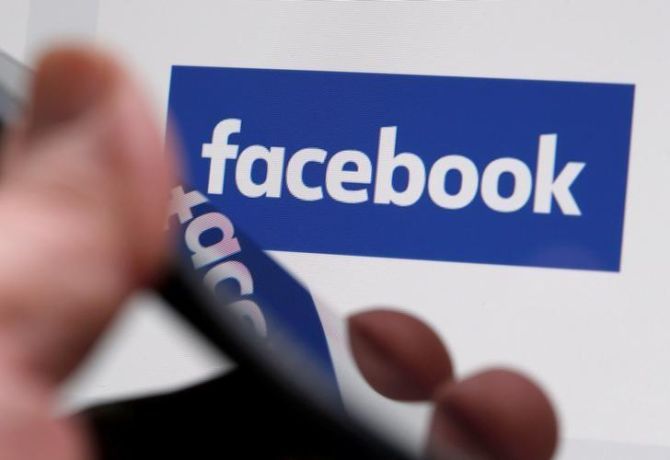 | « Back to article | Print this article |
The fears arise from Facebook’s handling of user data and potential privacy violations, more specifically the Cambridge Analytica scandal.

Several experts believe that strict oversight coupled with hiving off Facebook into smaller companies may be the only solution to ensure that the country's data is not misused.
The idea that has been voiced by Facebook co-founder Chris Hughes in a recent editorial in The New York Times has found many takers in India.
According to officials in the IT ministry, after the general elections, there should be discussions on how having smaller companies of the social media giant could help in better oversight.
“We have time and again felt that we are blinded by the social media giant.
"The company needs to work more closely with the government and should let us know what is happening to the data.
This could be one of the way we can ensure that this happens,” said senior official in the IT ministry.
In the past one year, the Election Commission of India, Ministry of Electronics and Information Technology (MeitY), Ministry of Law and Justice, Department for Promotion of Industry and Internal Trade (DPIIT), as well as Niti Aayog, have had as many as 30 meetings with Facebook.
A chunk of the meetings have been around ensuring that the social media giants does not influence elections in anyway.
Multiple warnings have been given to Facebook and others such as Twitter over how elections should not be manipulated, and if it happens, there would be severe consequences.
The fears arise from Facebook’s handling of user data and potential privacy violations, more specifically the Cambridge Analytica scandal.
US regulators are under pressure to unwind Facebook’s acquisition of WhatsApp and Instagram, create space for more competition, and enact new privacy legislation that restricts what data Facebook can collect in the United States.
“From an Indian regulatory's perspective, such a move would help in better regulatory management and any legislative measures restricting data collection would have indirect impact in India as well and, can be used to support similar measures here.
"In the US, Federal Trade Commission (FTC) is currently investigating Facebook’s handling of user data and potential privacy violations.
"The FTC has been investigating Facebook for more than a year now and looking into whether Facebook’s actions in the Cambridge Analytica scandal constitute a violation of a consent decree it reached with the FTC in 2011,” said Salman Waris, managing partner at TechLegis Advocates & Solicitors.
He added that according to estimates, it is expected that FTC would impose a fine of $ 3 billion to $ 5 billion but proponents of unwinding Facebook claim the FTC fines are a “bargain” and argue that the commission should take further action, including imposing long-term limits on Facebook’s collection and use of personal data and levying “accountability measures and penalties” for Facebook executives.
However, Waris added that government needs to ensure that the social media giant is following the rules to the letter.
“New rules or unwinding Facebook may not really have a lasting impact unless there is real government oversight of such entities.
In case of a situation where the US regulators actually decide to unwind Facebook’s acquisition of WhatsApp and Instagram, the three entities would technically be dealing user data as third parties and in that sense would no longer be able freely share user data with each other,” added Waris.
Experts believe the corporate structure of Facebook is in the US, so corporate accountability is not in India.
However, it should not be the case as India is one of its largest growing markets.
“From 2016, there has been an integration between Facebook, WhatsApp and Instagram.
"The company says WhatsApp is free but Facebook is encashing or monetising this data.
"Since proper data protection laws are lacking in India, the questions remain whether the three will have the same accountability and how integrated Indians' data is within the Facebook network,” said Virag Gupta, Supreme Court advocate.
Photograph: Regis Duvignau/Reuters